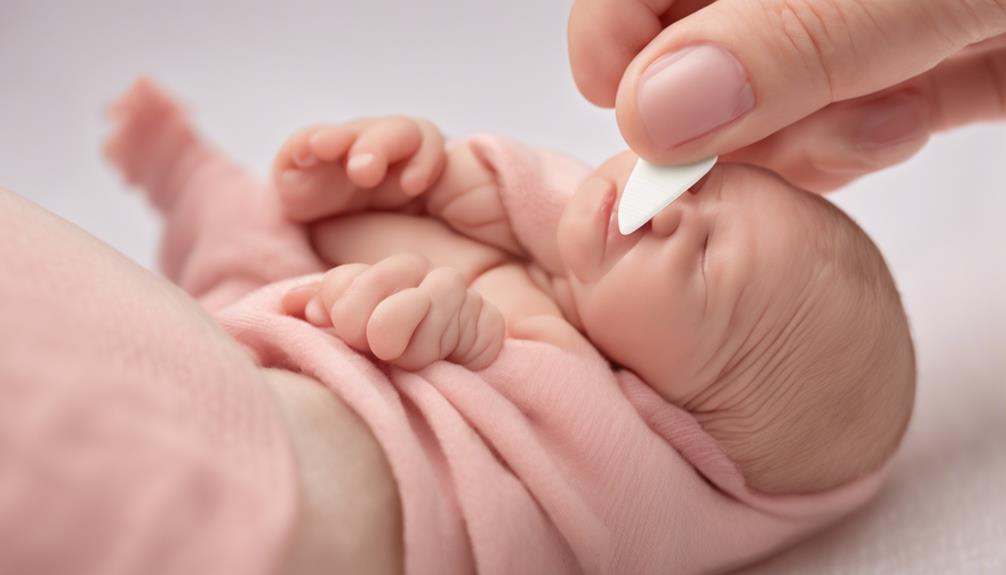In pregnancy, the second trimester is often seen as a period of calm before the storm, bringing a sense of comfort and anticipation for expecting parents.
However, as we navigate this vital phase, there are essential aspects worth noting and preparations to be made.
From understanding the changes in your body to ensuring the well-being of your growing baby, there are key insights and strategies that can help you make informed decisions and embrace this transformative journey with confidence.
Key Takeaways
- Monitor weight gain and caloric intake for a healthy pregnancy.
- Engage in self-care activities like planning a babymoon or baby shower.
- Stay informed about baby's development milestones and prenatal care options.
- Seek emotional support, practice relaxation techniques, and communicate concerns openly.
Common Symptoms in Second Trimester
Experiencing common symptoms in the second trimester can vary greatly among pregnant individuals, but understanding what to expect can help navigate this stage of pregnancy with more ease and confidence. As the second trimester progresses, morning sickness typically decreases, bringing relief to many expectant mothers. However, new challenges like skin itching and backaches may surface, reminding us of the ever-changing nature of pregnancy. Hormonal fluctuations continue to play a significant role, contributing to physical discomforts such as varicose veins, nasal congestion, nosebleeds, and gum bleeding.
Additionally, you may notice an increase in appetite during this trimester, which is often accompanied by ongoing digestive issues like heartburn and constipation. It's also common to experience mild swelling, dizziness, and temporary leg cramps as your body adapts to the growing baby. Alongside these changes, weight gain becomes more noticeable, and symptoms like backaches, skin changes, and hormonal fluctuations further emphasize the transformative journey of pregnancy. Remember, each pregnancy is unique, so recognizing the importance of listening to your body and seeking support when needed is crucial.
Nutrition and Exercise Tips

As your body continues to undergo changes during the second trimester, prioritizing proper nutrition and exercise becomes key for supporting both your own health and the growth of your baby.
Here are some essential tips to navigate this important phase:
- Increase Caloric Intake: Adding 300-350 extra calories daily supports fetal growth and your well-being.
- Track Weight Gain: Monitor your weight weekly to make sure it aligns with healthy pregnancy guidelines.
- Plan a Babymoon: Consider a relaxing getaway or staycation to rejuvenate during this trimester.
- Prepare for Celebrations: Start envisioning and planning your baby shower or sprinkle to mark this special time.
- Avoid Unpasteurized Products: Steer clear of unpasteurized dairy and juices to reduce the risk of foodborne illnesses.
Taking care of your nutrition and staying active are essential components of a healthy second trimester. Remember to nurture yourself as you prepare for the arrival of your little one.
Baby's Development Milestones
By the midpoint of the second trimester, your baby achieves significant developmental milestones, such as weighing around 2 pounds and exhibiting growth in hair and skin.
As the second trimester progresses, you may start to feel your baby's movements around week 21, a beautiful sign of increased activity and responsiveness.
Around week 18, your little one weighs as much as a chicken breast, showing steady growth. Fetal development during this time includes the preparation of the digestive system for life outside the womb, along with other important changes like the formation of vernix caseosa to protect the skin.
This period may also mark the need for maternity clothes as your body accommodates the baby's growth. Blood flow increases to support your baby's development, emphasizing the evidence of regular check-ups.
Consider enrolling in childbirth classes to prepare for the upcoming journey. These milestones aren't only evidence to your baby's growth but also to the amazing journey you both are on together.
Prenatal Care and Tests

Ensuring ideal health for both the baby and the mother, regular prenatal care during the second trimester involves thorough monitoring of symptoms, fetal growth, and maternal well-being.
Here are some essential points to consider:
- Essential tests like blood tests and a second ultrasound scan around 20 weeks help assess the baby's development and overall health.
- Options to decline certain tests or scans are available, allowing expecting parents to make informed decisions about their pregnancy.
- Considering birthing place and method, as well as the choice to find out the baby's gender, are important decisions to discuss with healthcare providers.
- Quitting smoking is vital during pregnancy to protect the baby's health and well-being.
During this period, it's crucial to stay informed and engaged with your healthcare provider to ensure a smooth and healthy pregnancy journey. Remember, your health and the well-being of your baby are top priorities.
Coping With Emotional Changes
Handling the emotional changes during the second trimester can be supported through seeking guidance from healthcare providers, partners, family, or professionals. Bonding with the baby through feeling their movements and seeing them during scans can be a powerful way to connect emotionally. It's common to experience worries and concerns during this time, but discussing them with a support system can help alleviate some of the emotional stress. Midwives are a valuable resource for providing guidance and support in decision-making processes, which can aid in coping with emotional changes effectively. Additionally, practicing relaxation techniques such as deep breathing exercises can assist in managing anxiety and stress levels.
| Coping Strategies | Description |
|---|---|
| Bonding with the baby | Connect emotionally through feeling movements and seeing scans. |
| Seeking Support | Discuss worries with healthcare providers, partners, family, or midwives. |
| Relaxation Techniques | Practice deep breathing exercises to manage anxiety and stress levels. |
| Professional Guidance | Consult with midwives for decision-making support during emotional changes. |
Frequently Asked Questions
What You Need to Know About the 2nd Trimester?
Here's what we've learned about the 2nd trimester: it's a period of exciting changes. Symptoms may shift, weight gain is expected, and your baby reaches important milestones. Remember, routine monitoring and screenings are key for a healthy pregnancy journey.
What Precautions Should Be Taken During Second Trimester of Pregnancy?
During the second trimester of pregnancy, we should take precautions such as avoiding lying flat on our backs, staying hydrated, practicing safe exercises, being cautious with heat sources, and consulting healthcare providers before taking any medications or supplements.
How Do I Know My Baby Is Okay in the Second Trimester?
We monitor fetal growth, movements, and heartbeat in the second trimester to guarantee baby's well-being. Regular ultrasounds and prenatal visits help us track development and address any concerns promptly. Your baby's health is our priority.
What Are Some Key Milestones During the Second Trimester of Pregnancy?
We'll guide you through the second trimester, where baby's bones harden, organs mature, and tiny features like hair and fingerprints emerge. By the end, your little one will be around 2 pounds, moving, and growing beautifully.
Conclusion
As we navigate through the second trimester, it's important to remember that every pregnancy journey is unique.
While we may face challenges like carpal tunnel syndrome and skin changes, we also get to witness the miraculous milestones in our baby's development.
By prioritizing self-care, staying informed, and seeking support, we can embrace these changes with confidence and prepare for the amazing journey ahead.
Remember, you're not alone in this journey, and we're here to support each other every step of the way.









